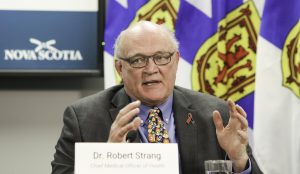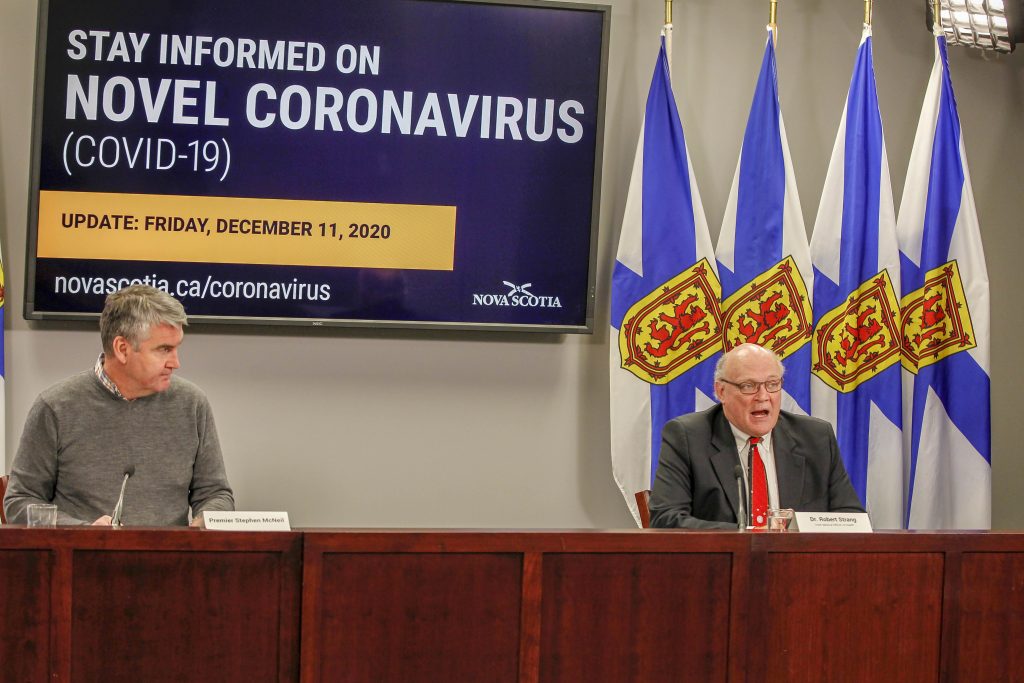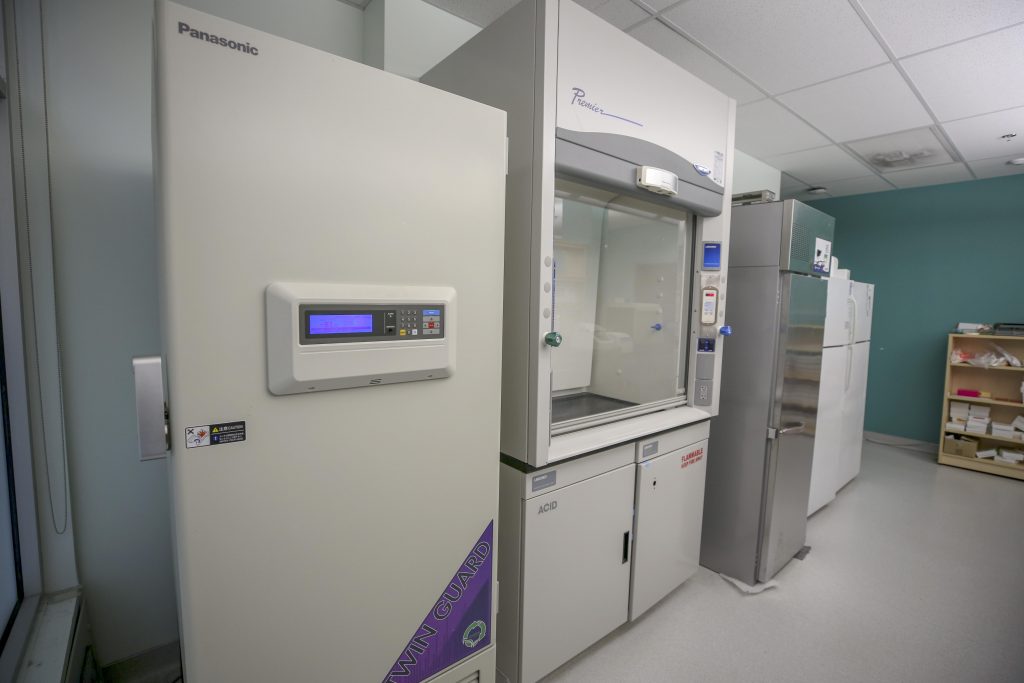Province releases timeline for COVID-19 and influenza vaccines rollout

Dr. Robert Strang speaks at COVID briefing February 23, 2022. Photo Communications Nova Scotia
Nova Scotia has announced the availability of new COVID-19 and influenza vaccines.
Chief Medical Officer of Health Dr. Robert Strang provided details about the rollout at a press conference Tuesday.
Nova Scotians aged 65 and older can get the high-dose influenza vaccine now. All Nova Scotians will have access to Moderna’s updated COVID-19 vaccine during the week of October 16. The standard-dose influenza vaccine is arriving in the province the week of October 23 and Pfizer’s updated COVID-19 vaccine will be available sometime in late October or early November.
The high-dose flu vaccine will be available at local pharmacies and medical clinics across the province starting this week.
Strang emphasized the importance of vaccination, stating, “This fall, we encourage everyone to roll up their sleeves and get both recommended vaccines to protect their health. It’s the best way to limit the spread of both influenza and COVID-19.”
The province is advising Nova Scotians that they can receive both flu and COVID vaccines at the same time. Anyone wishing to receive a vaccine can do so at a nearby pharmacy or outreach clinic by signing up online at Nova Scotia Immunization. Alternatively, people can book their shots through their family doctors or nurse practitioners.
Nova Scotia Health is reminding people that vaccines do not cause influenza or COVID-19 and that symptoms for both illnesses can overlap, including fever, headache, and fatigue.
Anyone who has already received their primary series of COVID-19 vaccines are eligible for an updated dose if six months have passed since their last vaccination or known COVID-19 infection. And officials are recommending children aged six months to nine years should receive two doses of the influenza vaccine four weeks apart this fall if they have never been vaccinated before.
Health authorities are urging all Nova Scotians to prioritize their health by getting vaccinated against both influenza and COVID-19 to protect themselves, their loved ones, and their communities.
To hear the broadcast of this story click play below.
E-mail: edhalversonnews@gmail.com



